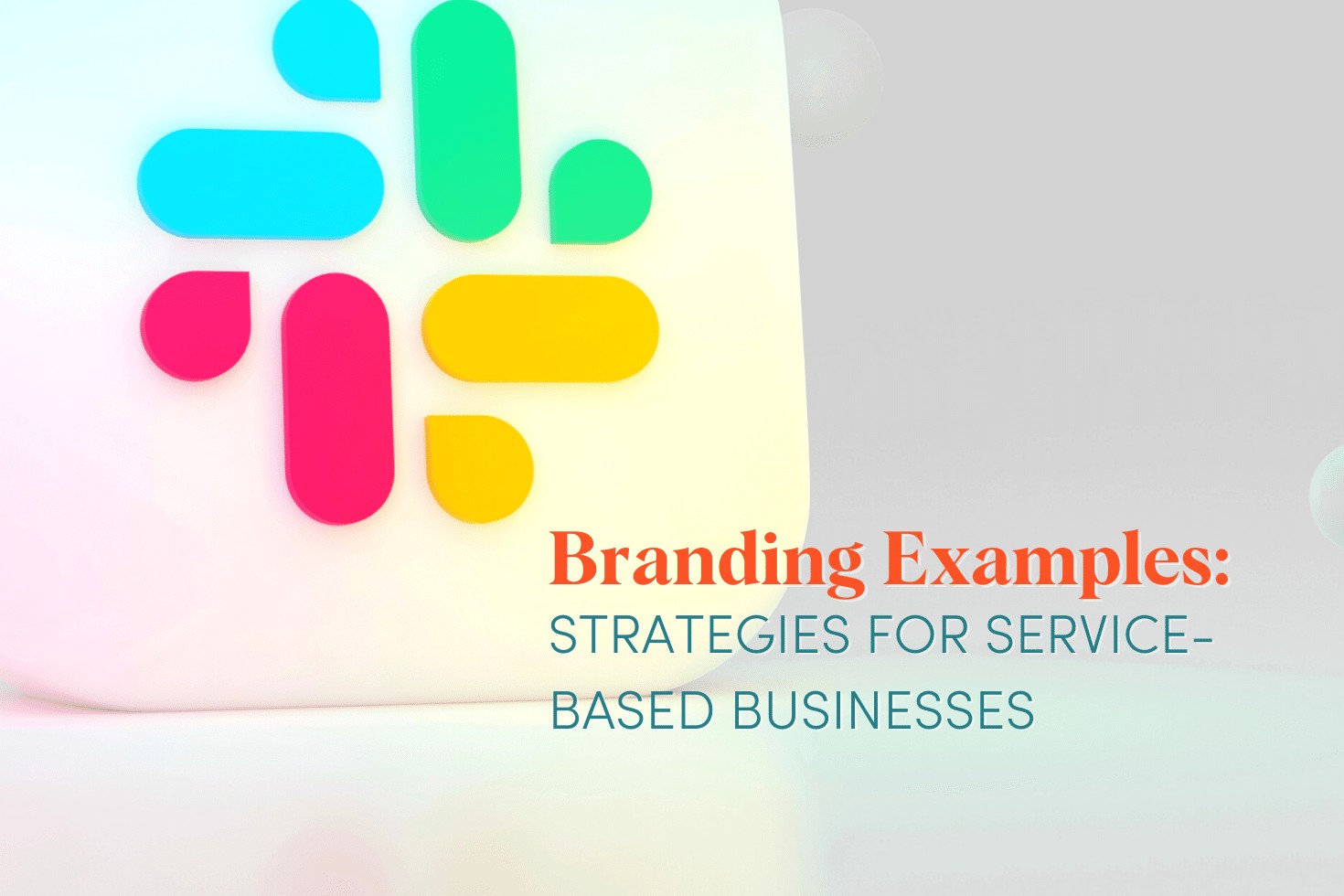
Welcome to our in-depth guide on branding strategies specifically tailored for service-based businesses! In this article, we will explore a diverse array of branding examples and expert insights to help you establish a strong and distinctive brand identity. Whether you’re a consultant, freelancer, or owner of a service-oriented business, effective branding is essential for standing out in today’s competitive market. Join us as we delve into real-world case studies, proven strategies, and actionable tips that will empower you to create a compelling brand that resonates with your target audience. Get ready to unlock the power of branding and elevate your service-based business to new heights! We hope these branding examples help you in building and activating your own bold, brave, and brag-worthy brand.
Table of Contents
The Power of Branding
Developing Brand Personality
Staying True to Company Vision Statements
Integrating Brand Values into Overall Strategy
Personal Branding for Coaches, Authors, Speakers & Consultants
Technology Branding Strategies for Business Success
Differentiating from Larger Competitors
Focusing on Innovation and Disruption
The Positive Impact of Strong Brand Culture
Innovative Case Studies
Customized Brand-Building Plan Development
FAQs in Relation to Branding Examples
Conclusion
The Power of Branding
Branding is a critical factor for companies, aiding in the establishment of an individual identity and fostering more meaningful customer relationships. By examining some of the most successful companies, small to medium-sized service-based businesses can create strong branding strategies that will help them stand out from their competitors.
Developing Brand Personality
A brand personality is the human-like characteristics associated with your business. It helps you resonate emotionally with your audience and differentiate yourself from competitors. To develop an effective brand personality, consider factors such as tone of voice, visual elements, and overall messaging.
Staying True to Company Vision Statements
Your company vision statement serves as the guiding light for all strategic decisions in your organization. Staying true to this statement ensures consistency across all aspects of your business while fostering trust among clients and employees alike.
Integrating Brand Values into Overall Strategy
- Honesty: Be transparent about what you do and how you operate; this will help build trust between you and your customers.
- Innovation: Embrace new ideas or technologies that can improve customer experiences or streamline operations within your industry.
- Sustainability: Implement eco-friendly practices wherever possible – not only does it benefit our planet but also appeals to environmentally conscious consumers.
Incorporating these core values into every aspect of your business, from marketing to customer service, can help you create a strong and memorable brand that resonates with your target audience. By following the example set by successful companies, small businesses can develop their own unique branding strategies to stand out in today’s competitive market.
The potency of a brand is incontestable; it can be the factor that decides triumph or defeat for an enterprise. With that in mind, let’s take a look at how personal branding can help coaches, authors, speakers & consultants build credibility through expertise and establish thought leadership in their niche.
“Create a unique identity and connect with customers on a deeper level through effective branding strategies. Learn from successful companies and stand out in today’s competitive market. #brandingtips #smallbusinesssuccess”
Personal Branding for Coaches, Authors, Speakers & Consultants
Personal branding plays an essential role in success when approached strategically, like corporate branding initiatives. This holds particularly true for coaches, authors, speakers, and consultants who aim to build strong personal brands within their respective industries. By focusing on the following key areas of personal branding development, these professionals can create a powerful presence that sets them apart from the competition.
Building Credibility through Expertise
A solid foundation of expertise is crucial to establishing credibility as a thought leader in your industry. Publishing content related to your field and offering beneficial information to those in your target audience is an effective way of demonstrating your expertise. Additionally, participating in podcasts or webinars can help demonstrate your skills while providing value to potential clients.
Establishing Thought Leadership in Your Niche
Staying informed of the latest industry trends and sharing related content on social media sites such as LinkedIn or Twitter can help you establish yourself as a thought leader in your niche. Engaging with other influencers and joining online communities will also help you build connections while showcasing your expertise.
Creating Consistent Visual and Messaging Elements
- Create a cohesive visual identity: A consistent visual identity across all touchpoints – including website design, logo usage, and business cards – helps reinforce brand recognition among potential clients.
- Craft compelling messaging: Your unique selling proposition (USP) should be clearly communicated through all marketing materials, such as website copy and email campaigns. A well-defined USP can help differentiate your personal brand from competitors while highlighting the value you bring to clients.
- Develop a consistent tone of voice: A distinctive tone of voice that resonates with your target audience is essential for creating an authentic connection. Whether it’s authoritative, friendly, or inspirational – ensure that your messaging consistently reflects this style.
By focusing on these key aspects of personal branding development, coaches, authors, speakers, and consultants can effectively build their reputation within their industry and attract more clients in the process.
Personal branding for coaches, authors, speakers and consultants is essential in establishing thought leadership and credibility. Leveraging technology-based strategies can help your business stand out from larger competitors while focusing on innovation and disruption.
Key Takeaway:
Personal branding is crucial for coaches, authors, speakers, and consultants to stand out in their respective industries. By building credibility through expertise, establishing thought leadership in your niche, and creating consistent visual and messaging elements such as a well-defined USP and tone of voice, these professionals can attract more clients by effectively building their reputation within the industry.
Technology Branding Strategies for Business Success
In the tech-driven landscape, creating a powerful brand is essential for business success. Creating a unique and memorable brand can be the key to distinguishing your business from its competitors and ensuring long-term success. In fact, 75% of venture-backed tech startups fail, often due to inadequate or ineffective creative analytical thinking during the initial stages of development. This highlights the importance of having good strategies in place to ensure long-term success.
Differentiating from Larger Competitors
To compete with larger players in your industry, it’s essential to develop a unique value proposition that sets you apart. Focus on what makes your offering distinct and superior to those of established firms. For example, Slack differentiated itself as an innovative communication platform designed specifically for teams, which helped them gain traction against giants like Microsoft and Google.
Focusing on Innovation and Disruption
Innovation should be at the core of any successful technology brand strategy. By constantly pushing boundaries and disrupting existing markets with new ideas, you can position yourself as a leader in your field. Consider how companies like Tesla have revolutionized electric vehicles or how Netflix has transformed entertainment consumption through streaming services.
- Create a culture: Encourage innovation within your organization by fostering an environment where employees feel empowered to share their ideas without fear of failure.
- R&D investment: Allocate resources to research and development, ensuring your company stays ahead of industry trends and technological advancements.
- Collaborate: Partner with other companies or organizations that share your vision for innovation. This can lead to mutually beneficial outcomes and increased brand exposure.
Equipping yourself with the right tech-driven branding tactics can aid in conquering a cutthroat market and create an enduring triumph within your sector.
By leveraging technology branding strategies, businesses can stand out from their larger competitors and focus on innovation and disruption. Additionally, a strong brand culture can have positive impacts such as improved employee engagement and customer loyalty through shared values.
Key Takeaway:
To succeed in the technology industry, it’s important to have a strong brand strategy that differentiates your product or service from larger competitors and focuses on innovation. Encouraging a culture of creativity, investing in research and development, and collaborating with like-minded organizations can help position your company as a leader in the field. Remember: standing out is key to success.
The Positive Impact of Strong Brand Culture
A positive brand culture improves productivity, attracts greater talent, retains high-performing staff, increases profits, engenders trust, and provides excellent customer experiences. All these factors contribute to helping you identify what makes your business stand out in terms of values and vision so that you can connect meaningfully with clients.
Improving Employee Engagement and Retention Rates
Research shows that companies with a strong brand culture have higher employee engagement levels. When personnel sense a bond to the firm’s purpose and beliefs, they are more likely to be passionate and devoted to their job. This leads not only to increased job satisfaction but also better retention rates as employees are less likely to seek opportunities elsewhere.
Enhancing Customer Loyalty through Shared Values
In addition to benefiting employees internally, a strong brand culture can also help foster customer loyalty by creating an emotional connection between customers and the company. Customers who share similar values with a company tend to become loyal advocates for the brand because they feel understood on a deeper level than just transactional interactions. This sense of belonging is essential for building long-term relationships that lead to repeat business.
- Create clear communication: Make sure your messaging consistently reflects your core values across all channels – from social media posts right down to internal communications within the organization.
- Prioritize transparency: Be open about how decisions are made within your company; this will demonstrate your commitment to your values and build trust with both employees and customers.
- Lead by example: As a business owner, it’s crucial that you embody the brand culture you want to create. This will inspire others within your organization to follow suit, ultimately strengthening the overall brand identity.
Key Takeaway:
A strong brand culture has a positive impact on productivity, talent attraction and retention rates, profits, trust building and customer experiences. It also improves employee engagement levels which leads to increased job satisfaction and better retention rates. Incorporating strategies such as clear communication, transparency and leading by example can help foster a strong brand culture that creates lasting connections with customers who share similar values.
Innovative Case Studies
Here are three remarkable examples of small service-based businesses that utilized innovative branding approaches to connect with their target audiences while staying true to their core values and vision:
Blissful Bites Bakery: Overcoming Dietary Restrictions with Personalized Branding

Problem: Blissful Bites Bakery, a small gluten-free bakery, faced the challenge of reaching a niche market of customers with dietary restrictions. They needed to differentiate themselves from traditional bakeries and build trust among individuals seeking gluten-free options.
Solution: Blissful Bites Bakery focused on personalized branding that highlighted their commitment to catering specifically to gluten-free diets. They emphasized their use of high-quality, all-natural ingredients and developed a warm, welcoming brand personality that connected with their target audience. Through vibrant and visually appealing packaging, they communicated their dedication to providing delicious and safe gluten-free treats.
Results: By understanding their target audience’s unique needs and concerns, Blissful Bites Bakery successfully positioned themselves as a trusted provider of gluten-free baked goods. Their personalized branding approach allowed them to stand out in a crowded market and build a loyal customer base. They not only overcame the obstacle of reaching customers with dietary restrictions but also became a go-to choice for anyone seeking high-quality baked goods.
The Fit Lab: Inspiring Lifestyle Changes through Authentic Branding

Problem: The Fit Lab, a small fitness studio, faced the challenge of standing out in a saturated fitness market. They wanted to attract clients who were looking for more than just a workout but also sought a supportive and empowering community to help them achieve their fitness goals.
Solution: The Fit Lab focused on authentic branding that reflected its core values of inclusivity, community, and holistic wellness. They created a brand identity centered around empowering individuals to make positive lifestyle changes rather than solely focusing on physical transformations. They emphasized their knowledgeable and supportive trainers, community events, and educational resources that went beyond the typical gym experience.
Results: By aligning its brand with the values and aspirations of its target audience, The Fit Lab successfully differentiated itself from generic fitness studios. Their authentic branding approach resonated with individuals seeking a more holistic fitness experience, and they were able to attract a dedicated community of clients. The Fit Lab’s branding helped them overcome the challenge of standing out in a saturated market by creating a unique and compelling value proposition.
House to Home Design: Transforming Spaces with Unique Branding

Problem: House to Home Design, a small interior design firm, faced the challenge of establishing itself as a reputable and innovative player in a competitive industry. They needed to showcase their design expertise and attract clients who desired personalized and creative solutions for their homes.
Solution: House to Home Design implemented a unique branding strategy that showcased their creativity and attention to detail. They developed a portfolio that highlighted their most innovative and aesthetically pleasing projects, showcasing their ability to transform spaces and create personalized experiences. They also focused on crafting a brand voice that communicated their passion for creating homes that reflected the unique personalities and lifestyles of their clients.
Results: Through its unique branding approach, House to Home Design positioned itself as a go-to choice for clients seeking personalized and creative interior design solutions. Their portfolio showcased their expertise and provided social proof of their ability to transform spaces. By connecting with its target audience’s desire for unique and personalized design, House to Home Design overcame the obstacle of establishing itself in a competitive industry and attracted clients who appreciated its innovative approach.
These case studies demonstrate how innovative branding approaches can help small service-based businesses overcome challenges and connect with their target audiences. By understanding their audience’s needs, staying true to their core values, and crafting unique brand experiences, these businesses successfully differentiated themselves and achieved significant results.
Innovative Small Business Case Studies demonstrate how powerful branding can be in creating an impactful message and driving business growth. By taking a closer look at these examples, we can develop a customized brand-building plan that will assess current branding effectiveness and identify areas of improvement or opportunities for growth.
Check out these innovative small business branding examples that showcase authenticity, inclusivity, and creativity in connecting with target audiences. #branding #smallbusiness #innovation
Customized Brand-Building Plan Development
A customized brand-building plan and strategy tailored to your business needs can be developed by professionals like Lorraine Carter, ensuring that your branding efforts are aligned with your unique goals, target audience, and industry trends. This section will discuss the importance of assessing current branding effectiveness and identifying areas of improvement or opportunities for growth.
Assessing Current Branding Effectiveness
To create a successful brand-building plan, it’s essential first to evaluate how well your existing branding is performing. Are you effectively communicating your core values? Is there consistency in visual elements across all platforms? By conducting a thorough brand audit, you can identify
- Analyze customer feedback to gauge the perception of your brand.
- Review social media engagement metrics for insights into what resonates with audiences.
- Evaluate website analytics data to determine if visitors find value in the content provided.
Identifying Areas of Improvement or Opportunities for Growth
Once you’ve assessed the effectiveness of your current branding strategy, it’s time to pinpoint areas where improvements can be made or new opportunities seized. For example:
- 1. Innovative partnerships: Collaborate with complementary brands on joint marketing campaigns or product offerings (e.g., OK Go and Honda UNI-CUB self-balancing unicycles collaboration).
- 2. Tapping into emerging trends: Stay ahead by embracing cutting-edge technologies (e.g., augmented reality) or exploring new niches within your industry.
- 3. Refining messaging: Ensure that all communications, from social media posts to email marketing campaigns, are aligned with your brand values and speak directly to the needs of your target audience.
A customized brand-building plan developed by experts will help you capitalize on these opportunities while staying true to your unique vision and goals. A structured plan will give you the tools to thrive in a crowded marketplace and reach your objectives.
Key Takeaway:
To build a successful brand, it’s important to develop a customized plan and strategy tailored to your business needs. This involves assessing the effectiveness of your current branding approach by analyzing customer feedback, social media engagement metrics, and website analytics data. Once you’ve identified areas for improvement or opportunities for growth, refining messaging and tapping into emerging trends can help you stay ahead in today’s competitive market landscape.
FAQs in Relation to Branding Examples
What is brand personality and why is it important?
Brand personality refers to the human-like characteristics associated with a business. It helps businesses resonate emotionally with their audience and differentiate themselves from competitors. Developing an effective brand personality through factors such as tone of voice, visual elements, and messaging is important for creating a strong brand identity.
How can companies stay true to their vision statements?
Staying true to a company’s vision statement ensures consistency across all aspects of the business and fosters trust among clients and employees. Companies can stay true to their vision statements by aligning all strategic decisions with the stated vision, regularly evaluating their actions against the vision, and communicating the vision to all stakeholders.
How can small businesses incorporate brand values into their overall strategy?
Small businesses can incorporate brand values into their overall strategy by integrating them into every aspect of the business, from marketing to customer service. Key brand values such as honesty, innovation, and sustainability should be transparently communicated to customers and reflected in the business’s actions and operations.
How can technology-based strategies help businesses stand out in the market?
Technology-based strategies can help businesses stand out in the market by differentiating themselves from larger competitors and focusing on innovation. By leveraging technology to offer unique value propositions, fostering a culture of innovation within the organization, and collaborating with like-minded organizations, businesses can position themselves as leaders in their field.
Conclusion
From developing a brand personality to creating consistent visual and messaging elements, this post explores the power of branding for small to medium-sized service-based businesses and personal brands. We discuss how building credibility through expertise, establishing thought leadership in your niche, and focusing on innovation can lead to success.
In addition, we see how strong brand culture can improve employee engagement and retention rates while enhancing customer loyalty through shared values. Innovative case studies like Dove’s Real Beauty campaign or Procter & Gamble’s #LikeAGirl viral videos teach us about successful branding strategies that have made an impact.
If you’re looking for help with your own branding examples, Elly & Nora Creative can assist you in developing a customized plan that assesses current effectiveness while identifying areas of improvement or opportunities for growth. Contact us today to learn more!

